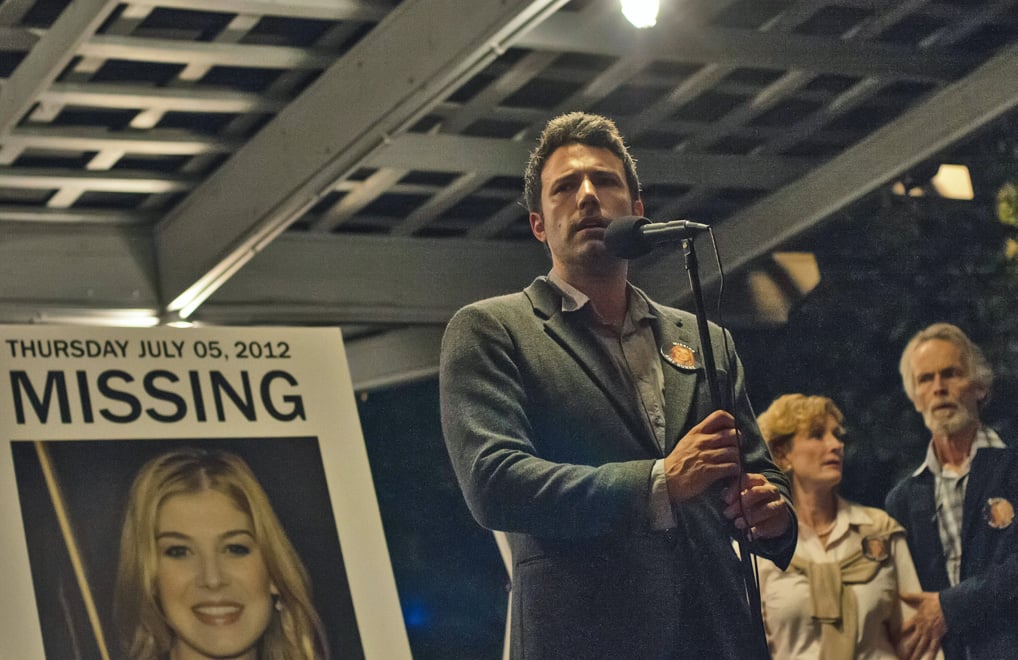
David Fincher’s film adaptation of “Gone Girl” examines in-depth the relationship of a man and woman perhaps ill-matched but ultimately deserving of one another. And there’s something lurking behind Amy’s elegant facade.
Although “Gone Girl” has an interesting premise, the film falls short of exposing the intimate nuances of Nick and Amy’s marriage. The narrative worked well as a novel because readers could soak in Gillian Flynn’s fully fleshed out characterizations of the couple. Even with two and a half hours of screen time, Fincher does not completely capture Amy’s obsessive vengefulness and commitment to dispelling myths about “the perfect woman.”
The first half of the film mostly consists of Nick bumbling around with his college-age mistress and ineptly dealing with the media fiasco during the investigation, but the film neglects what should be its primary focus: Amy’s sociopathic tendencies. Her psychology is key to the plot twist, and her machinations are what propel the novel forward. The film, on the other hand, feels bloated, rife with disjointed scenes and little substance. Nick and Amy do a lot, but their motivations are never clear.
While Fincher sometimes muddles character development, his views on marriage are loud and clear. The devolution of the Dunnes’ marriage reveals a rather depressing view of romance. We are meant to relate to Nick and Amy’s relationship at first and maybe remember our own first encounters with a special someone. The candlelit lighting in the flashback scenes is warm and inviting, while also foreboding. Fincher seems to warn that we become more monster than human when engrossed in another person for too long. Near the resolution of the film, Nick questions his future with Amy: “…Why would you even want this? Yes, I loved you, and then all we did was resent each other, try to control each other. We caused each other pain.” Amy replies with a simple, “That’s marriage.”
“Gone Girl” is not a feel-good film, nor is it a particularly enlightening study of a sociopath’s (possibly even sociopaths’) romantic relationship. Fincher doesn’t completely develop his two main characters, but he does raise interesting questions about the state of marriage in America and whether any of this relationship nonsense is worth it. Then again, Nick and Amy managed to work out the kinks of the marriage in their own way. And if America’s most dysfunctional couple can work through it, maybe everyone else can, too.
Contact Diana Le at dianale ‘at’ stanford.edu
